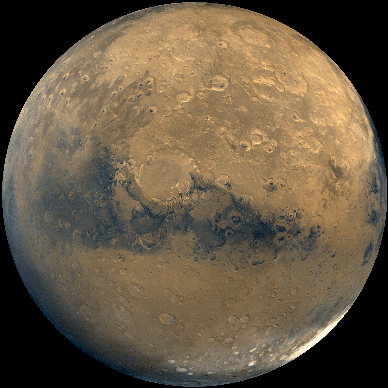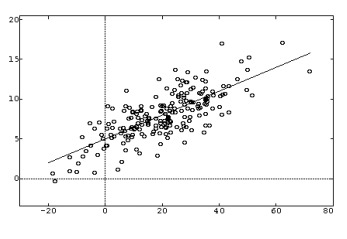- Air Homepage
- Global Warming
- The Gaia Hypothesis
What is the Gaia Hypothesis?
Search for more environmental theory.
Have you heard of the Gaia Hypothesis? Natural systems on the planet are somewhat interconnected, even to the average person.
As a result, we have a basic understanding of all things that feed or live off of the oceans, like rain. When you consider this basic fact on a much larger scale, you get the Gaia Theory.
James Lovelock's Gaia hypothesis suggests that the Earth works like a self-regulating, complex system where living organisms interact with the environment to maintain living conditions. The Earth's biosphere, atmosphere, oceans, and geology all work together to create and maintain optimal conditions for life.
Plants, animals, and microorganisms play a crucial role in regulating and maintaining the composition of the Earth's atmosphere, according to the Gaia hypothesis. Oxygen, carbon dioxide, and other trace gases are exchanged with the atmosphere through photosynthesis, respiration, and decomposition.
Photosynthesis, for example, absorbs carbon dioxide and releases oxygen, which helps regulate the balance of these gases in the atmosphere. As well as nitrogen fixation, certain microorganisms convert atmospheric nitrogen into forms that plants can use.
According to the Gaia hypothesis, living organisms and the Earth's systems are interconnected, so changes in the environment can affect the atmosphere, which then affects the conditions for life. Burning fossil fuels and deforestation, for example, can increase greenhouse gases like carbon dioxide, which can cause climate change and affect air quality.
Although the Gaia hypothesis has sparked scientific debate, it highlights the intricate relationship between living organisms and the environment, including the possible impact on air quality. The Gaia hypothesis is still a theory and subject to ongoing scientific investigation and criticism.
Meet the EarthScience Author...
The Gaia Theory, or the Gaia Hypothesis, was developed by Dr. James Lovelock. Early on, he was interested in astronomy, chemistry, and astrophysics, which fueled his thirst for knowledge about planetary bodies. After inventing the electron capture detector, which found DDTs and CFCs in organic matter, he'd go to NASA. He'd help find out if Mars had life.
Why is his hypothesis interesting? Several groups and individuals have been interested in the Gaia hypothesis:
- A lot of scientists and researchers are interested in the Gaia hypothesis, including those in ecology, Earth systems science, and environmental science. They study and explore the interactions between living organisms and the environment, trying to understand how feedback mechanisms may affect the Earth's systems and its ability to support life.
- Conservationists and environmentalists: The Gaia hypothesis is relevant to those concerned about ecosystem conservation. In it, the interconnectedness of life on Earth is explained, and the importance of maintaining a healthy balance between organisms and their environment is emphasized. The report emphasizes the need for sustainable practices to preserve biodiversity and keep the planet healthy.
- Philosophers and Thinkers: The Gaia hypothesis has philosophical implications, sparking discussions about life, the Earth as a living system, and humans' role in shaping it. Questions are raised about humanity's responsibility to take care of the Earth and how humans and the environment are interconnected.
- For policy makers and planners: The Gaia hypothesis can inform environmental management, conservation strategies, and climate change mitigation. Ecosystem interconnectedness and the potential consequences of human actions can help guide decision-making for a more sustainable future.
- People who are curious about the Earth and its intricate workings are intrigued by the Gaia hypothesis. It inspires awe and appreciation for the beauty and intricacy of life on Earth by showing the planet as a complex and interconnected system.
To find said life, he looked to our planet Earth as a starting point. The Earth, according to Lovelock, is one huge system, maybe even a macroorganism, with every living thing responsible for regulating the temperature and other conditions, and for keeping a constant atmosphere and planetary composition so that we can all thrive on it.
The basis for Lovelock's theory has led to debates about what oceanic algae do and how their dimethyl sulfide emissions affect our climate. Carbon dioxide passing from certain ecosystems into soil has a tendency to increase weathering, as well.
Sometimes biologists, geologists, and geochemists don't like Gaia. It's a good point: if the Earth is a living system, then why doesn't its climate or chemical composition have a physiology?
A few examples of the Gaia Hypothesis
If you landed on the Red Planet and took some soil samples, would that give you a true indication of whether life existed there? Nope.
Instead, Lovelock suggested taking samples of the atmosphere's chemical composition. The planet's air would be used by living things and excreted back into it. If a planet had no life, its atmosphere would be balanced with a higher concentration of carbon dioxide. A planet with life will have a flux of materials and hardly any carbon dioxide in the air.
Water, nitrogen, oxygen, and methane, which can only be found in the air that life breathes, are also abundant in Earth's atmosphere. Before Viking Landers reached Mars, Lovelock determined it was lifeless.
Balance in the chemical world
Our atmosphere's chemical makeup shows what we can see: it's steady and constant, just like much of our planet. There's only one thing constant: change. Nothing stops happening for a millisecond. According to Lovelock, the climate is "actively regulated." According to his Gaia Hypothesis, "the whole system of life and its material environment is self-regulating at a comfortable level."
These material levels can be used to illustrate the Gaia Hypothesis. Oxygen will always stay at a level that's comfortable for us oxygen-breathing animals because of the Gaia effect. Earth's surface temperature regulates life too. It's been 10-20°C for well over three billion years, which is also when the sun's power has increased by 30-40%. Carbon dioxide stabilizes the temperature. Throughout time, carbon dioxide levels decline when the atmosphere can't block solar radiation.
Dimethyl sulphide is also related to temperature. This chemical may be controlled by phytoplankton, since that's what they excrete. Eventually this turns into droplets of sulfuric acid that are released into the atmosphere, creating clouds that block more of the sun, allowing the oceans to cool off. Natural weathering releases salts into oceanic waterways sometimes too fast for life to adapt. Salinity has stayed at 10% saturation for millions of years. The salt may be moved away from the ocean by salt flats.
What's the latest in Global Warming?
Not everything is covered on this website. It can't be. If you know something you're itching to tell the world, here's your chance. I'm all ears.
Go ahead.
A few previous facts...
Click below to see information from other visitors to this page...
Comments on global warming - a short series Not rated yet
Think of Earth as a complete organism, with several interconnected systems. It is getting a fever and James Lovelock said that by the year 2100 people …
Basically, the Gaia Hypothesis says that the air we breathe contains what we need to survive and breathe. As life adapts to changes, if we disturb the equilibrium in any harsh matter, it will evolve into something else. In one life cycle, people, plants, animals, water, and air all feed off each other. We might become less abundant if we unbalance it.
Gaia hypothesis is a scientific concept that's been criticized and supported. It provides a thought-provoking framework, but it's subject to ongoing scientific investigation and debate to refine and validate it.
Go back from The Gaia Hypothesis to the Global Warming Unavoidable web page, or visit the Stuff in the Air homepage.
Search this site for more information now.
Earth is a self-regulating system, according to the Gaia Hypothesis.
A complex system that keeps the planet alive. Earth is a living, breathing organism that works with nature and its inhabitants in harmony.
Find out about the relationship between the Gaia Hypothesis and climate control, climate change, and atmospheric composition.
Have Your Say
Something about global warming burning you? Need to say something and have it appear on this site for others to see? Go ahead: Have your Say about Global Warming
You can even comment on the other buzz...no registration or login required.






New! Comments
Do you like what you see here? Please let us know in the box below.